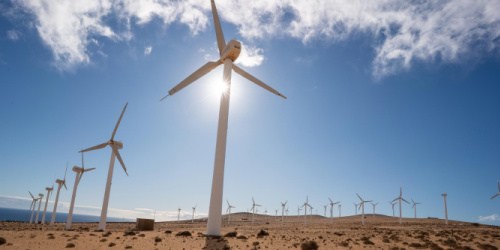In 2022, the United States government introduced the Inflation Reduction Act, a comprehensive economic package aimed at addressing rising inflation and bolstering the nation's economic stability. While the Act encompasses various measures, one of its key impacts is on the renewable energy industry. This industry has been a cornerstone of the country's efforts to combat climate change, reduce carbon emissions, and transition to a more sustainable energy future. In this article, we'll explore how the Inflation Reduction Act of 2022 is affecting the renewable energy industry in the USA.  Positive Impacts Investment in Renewable Energy Infrastructure: The Act includes provisions for significant investments in renewable energy infrastructure. This includes funding for solar and wind energy projects, energy storage systems, and grid modernization. These investments are expected to accelerate the growth of the renewable energy industry, creating jobs and boosting local economies. Tax Incentives and Credits: The Act extends and enhances tax incentives and credits for renewable energy projects. This means that businesses and individuals investing in renewable energy systems can continue to benefit from tax breaks, making such projects more financially attractive. Innovation and Research: The Inflation Reduction Act allocates funds to support research and development in the renewable energy sector. This will spur innovation, improve technology, and ultimately make renewable energy sources more efficient and affordable. Energy Efficiency Programs: The Act also promotes energy efficiency, which is closely tied to the renewable energy sector. By encouraging energy-efficient practices and technologies, it indirectly supports the growth of renewables. Challenges and Concerns Rising Costs: While the Act is designed to combat inflation, there are concerns that it may inadvertently lead to increased costs for certain renewable energy components. For example, if the cost of steel or other construction materials rises due to inflation, this could affect the cost of building wind turbines and solar panels. Supply Chain Disruptions: Supply chain disruptions, which have been a challenge in various industries since the beginning of the COVID-19 pandemic, continue to impact the renewable energy sector. The Inflation Reduction Act does not directly address these issues, potentially delaying some projects and driving up costs. Market Uncertainty: The renewable energy industry often relies on consistent government policies and incentives to thrive. While the Act does extend tax credits, the industry may still face some uncertainty as it navigates inflation-related challenges and changing political landscapes. Competing Priorities: The Act allocates funds to various sectors, including healthcare, education, and infrastructure. This raises concerns about competition for resources and whether renewable energy will receive adequate attention and funding to meet its goals. Conclusion The Inflation Reduction Act of 2022 has both positive and negative implications for the renewable energy industry in the USA. On one hand, the Act's investment in infrastructure, tax incentives, and research funding are expected to propel the industry forward. On the other hand, rising costs, supply chain disruptions, and market uncertainty present challenges that need to be carefully managed. The future of the renewable energy industry in the USA will depend on a combination of government policies, private sector investments, and technological advancements. While the Inflation Reduction Act provides a significant boost, it's essential for industry stakeholders to work in tandem with policymakers to address the challenges and ensure a sustainable and clean energy future for the nation. By proactively addressing these issues, the USA can continue to make progress in reducing carbon emissions and combating climate change while spurring economic growth and job creation in the renewable energy sector. True Expertise DeliveredCoalesce Management Consulting's energy experts are available to develop renewable energy projects across America. As the industry grows we will continue to support those who are producing clean, reliable energy by delivering the engineering consultants who can help overcome challenges and achieve your energy goals. Get in touch with Eddy and the energy team to learn more about our Expert on Demand, Team on Demand and Capacity Partnering services within the renewable energy industry. |